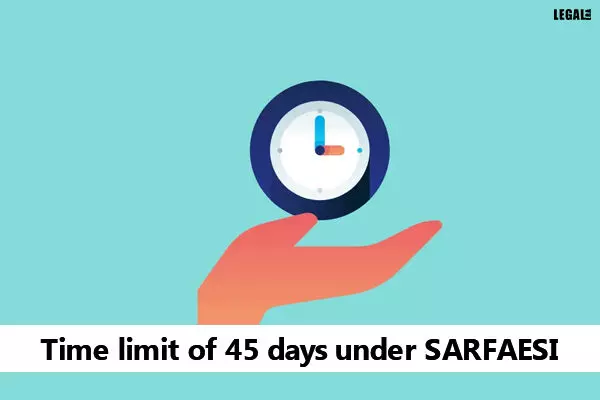- Home
- News
- Articles+
- Aerospace
- Agriculture
- Alternate Dispute Resolution
- Banking and Finance
- Bankruptcy
- Book Review
- Bribery & Corruption
- Commercial Litigation
- Competition Law
- Conference Reports
- Consumer Products
- Contract
- Corporate Governance
- Corporate Law
- Covid-19
- Cryptocurrency
- Cybersecurity
- Data Protection
- Defence
- Digital Economy
- E-commerce
- Employment Law
- Energy and Natural Resources
- Entertainment and Sports Law
- Environmental Law
- FDI
- Food and Beverage
- Health Care
- IBC Diaries
- Insurance Law
- Intellectual Property
- International Law
- Know the Law
- Labour Laws
- Litigation
- Litigation Funding
- Manufacturing
- Mergers & Acquisitions
- NFTs
- Privacy
- Private Equity
- Project Finance
- Real Estate
- Risk and Compliance
- Technology Media and Telecom
- Tributes
- Zoom In
- Take On Board
- In Focus
- Law & Policy and Regulation
- IP & Tech Era
- Viewpoint
- Arbitration & Mediation
- Tax
- Student Corner
- AI
- ESG
- Gaming
- Inclusion & Diversity
- Law Firms
- In-House
- Rankings
- E-Magazine
- Legal Era TV
- Events
- News
- Articles
- Aerospace
- Agriculture
- Alternate Dispute Resolution
- Banking and Finance
- Bankruptcy
- Book Review
- Bribery & Corruption
- Commercial Litigation
- Competition Law
- Conference Reports
- Consumer Products
- Contract
- Corporate Governance
- Corporate Law
- Covid-19
- Cryptocurrency
- Cybersecurity
- Data Protection
- Defence
- Digital Economy
- E-commerce
- Employment Law
- Energy and Natural Resources
- Entertainment and Sports Law
- Environmental Law
- FDI
- Food and Beverage
- Health Care
- IBC Diaries
- Insurance Law
- Intellectual Property
- International Law
- Know the Law
- Labour Laws
- Litigation
- Litigation Funding
- Manufacturing
- Mergers & Acquisitions
- NFTs
- Privacy
- Private Equity
- Project Finance
- Real Estate
- Risk and Compliance
- Technology Media and Telecom
- Tributes
- Zoom In
- Take On Board
- In Focus
- Law & Policy and Regulation
- IP & Tech Era
- Viewpoint
- Arbitration & Mediation
- Tax
- Student Corner
- AI
- ESG
- Gaming
- Inclusion & Diversity
- Law Firms
- In-House
- Rankings
- E-Magazine
- Legal Era TV
- Events
Time limit of 45 days under SARFAESI is for quick enforcement of security: Supreme Court

Time limit of 45 days under SARFAESI is for quick enforcement of security: Supreme Court
The time limit of 45 days for filing of an application under Section 17 of the SARFAESI Act is provided for quick enforcement of the security, as observed by the Supreme Court. According to Section 17 of the Act, the application against measures to recover secured debts has to be filed before the Debts Recovery Tribunal (DRT) within 45 days from the date on which such measure had been taken.
In this case, the DRT dismissed the Section 17 application on the ground that it was filed beyond the statutory period of limitation of 45 days. Later Debts Recovery Appellate Tribunal (DRAT) allowed the review petition filed against this order. The DRAT set aside this order observing that there has never been an error apparent on the face of record for exercising the review jurisdiction.
As a result, a writ petition was filed challenging the DRAT order before the High Court, which stayed the DRAT order and allowed DRT to proceed with the Securitization Application.
In an appeal, the Apex Court bench of Justices BR Gavai and PS Narasimha observed that the High Court was not justified in staying the operation of the order of the DRAT which came to the conclusion that there was no error apparent on the face of record for the DRT to invoke the review jurisdiction and recall its order.
The court observed: "The reason for providing a time limit of 45 days for filing an application under Section 17 can easily be inferred from the purpose and object of the enactment. In Transcore v. Union of India and Anr. this Court held that the SARFAESI Act is enacted for quick enforcement of the security. It is unfortunate that proceedings where a property that has been brought to sale and third-party rights created under the provisions of the Act, have remained inconclusive even after a decade."
The Apex Court set aside the impugned interim order and directed the High Court to dispose of the Writ Petition expeditiously, preferably within a period of three months.




